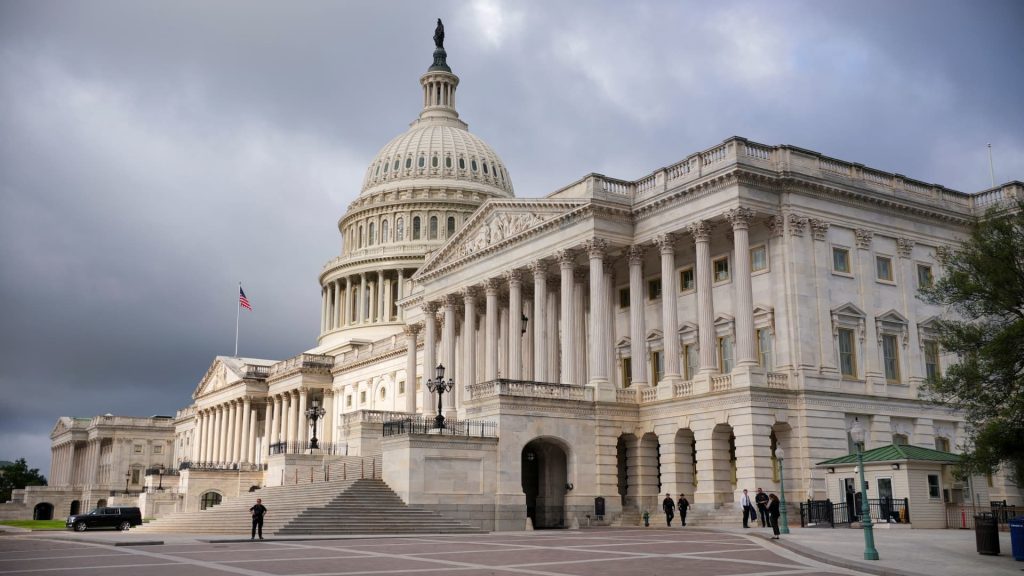The U.S. Capitol is seen in the morning on Capitol Hill in Washington, D.C., U.S., July 15, 2025.
Ken Cedeno | Reuters
More consumers could gain access to investments typically reserved for the wealthy — provided they can pass a test from regulators — under proposed bipartisan legislation.
The U.S. House of Representatives Monday approved a bill to expand the definition of who can qualify as a so-called “accredited investor” under federal securities laws. Accredited investors are permitted to invest in a wider range of assets, including pre-IPO companies, private credit and equity, venture capital and hedge funds.
The Equal Opportunity for All Investors Act of 2025 would direct the Securities and Exchange Commission to create a test that individuals can take to qualify as an accredited investor, without regard to their wealth or income.
Currently, to qualify as accredited, investors generally need an annual earned income of $200,000 for individuals, or $300,000 for married couples. Individuals or couples can also qualify with a total net worth of at least $1 million, not including the value of their primary residence. (Those thresholds are not pegged to inflation and haven’t changed in decades; as a result, more households have become accredited over the years as wealth and incomes grow.)
“In my view, wealth alone is not a particularly strong judge of whether someone should be an accredited investor, or not,” Rep. Mike Flood, R-Neb., the bill’s sponsor, said on the House floor. “A better one is whether someone has the knowledge to accurately weigh the benefits and risks of private offerings.”
The bill must still pass the Senate and be signed by the President before it can become law.
SEC test would determine ‘sophistication’
Accredited investor rules are about consumer protection: The limits “ensure that all participating investors are financially sophisticated and able to fend for themselves or sustain the risk of loss,” according to the SEC’s Investor.gov.
Private securities are less liquid, harder to value and more volatile than publicly-traded assets, experts say.
The bill asks that the SEC test be designed to determine whether an individual understands different types of securities, financial statements and risks associated with private assets, including their limited liquidity and disclosures, subjective valuations and longer investment horizons.
“The exam created by this bill is meant to strike the right balance between rigorously testing for sophistication and not being set to such a difficult standard that even an intelligent investor could not pass it,” Flood said.
Companies see opportunity
The proposal is also aimed at getting more money into the hands of start-up businesses.
“Small business leaders say that it’s not a lack of ideas, but a lack of capital that holds them back,” Rep. Sarah McBride, D-Del., co-sponsor of the bill, said on the floor. “This bill opens up new sources of funding from a pool of investors more reflective of the community, so that these founders can turn their vision into jobs and economic growth.”
Companies are already gearing up for more investors to be qualified to participate in private markets.
“I think this is really a great first step in terms of opening up what has otherwise been a walled garden,” said Eric Satz, founder and CEO of Alto, a self-directed IRA platform. “We have to give everyone the opportunity to participate as if they were an ultra-high net worth investor or a large financial institution.”
‘A lot of investors shouldn’t go anywhere near this’
Many financial advisors are lukewarm on private investments, and explore them with high-net-worth clients only after all the basics are covered.
“I would argue that a lot of investors shouldn’t go anywhere near this,” said certified financial planner Catherine Valega, founder of Green Bee Advisory, a Boston-based financial advisory firm. “Probably 95% of the country doesn’t even have an emergency savings fund, and now you’re going to tell them, if they’re smart enough, I can invest in private securities. That does not make sense to me.”
SIGN UP: Money 101 is an 8-week learning course on financial freedom, delivered weekly to your inbox. Sign up here. It is also available in Spanish.

